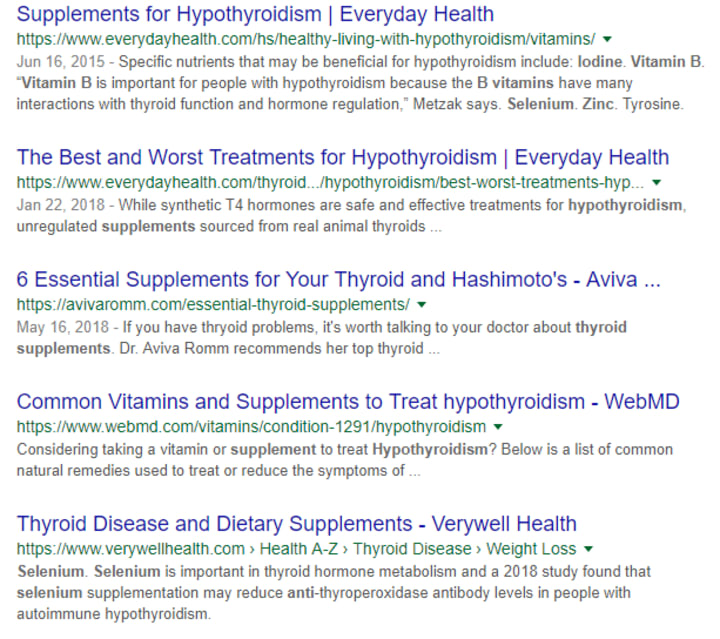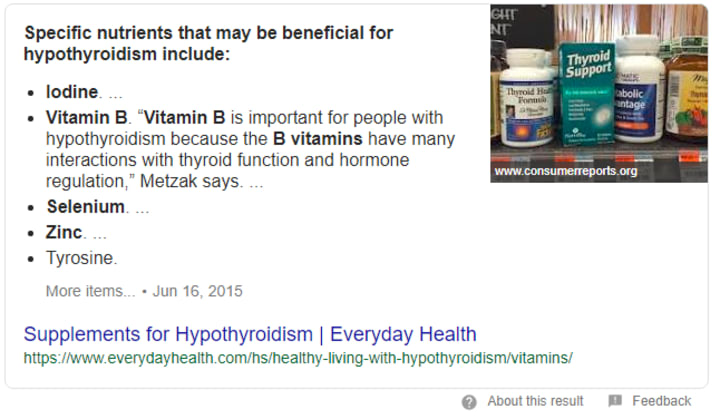Want to Learn the 12 Best SEO Tips for Small Businesses?
Whenever marketers and business owners are being surveyed about their strategies, search engine optimization shows up as a priority. You want some statistics?

By the statistics, 61 percent of marketers said that growing their organic presence and improving SEO was their top marketing priority.
50 percent of search engine users are more likely to visit a site if the brand shows up multiple times in the search engine results.
It’s clear that if you want to make your business visible online, you’ll need to engage in search engine optimization.
But if you’re a complete beginner in this, it’s not easy for you to understand the concept of SEO. You’re just trying to promote a small business out there, so why does this have to be so complicated?
Don’t worry. It’s not that hard. You just need some guidance to take you through the first steps. We’ll give you 12 SEO tips that will launch your small business into the online world.
1. Make your website great from a technical aspect.
The first thing you need to do is hire a good web designer. This is someone who can make the layout amazing, not only to visual appeal, but to the search engine’s appeal as well.
Google won’t direct users to your website if it’s slow or heavy on Flash. It will also neglect you if you skip the meta tags. So if you thought that you could start a free WordPress blog and make your brand known through it, you were wrong.
You can hire a local agency if you prefer in-person contact. If you don’t mind connecting with the designer on the web, you can also hire a freelancer. Here’s where you can find great web designers:
2. Target specific keywords.
If you write content without infusing keywords in it, it will be hard for you to achieve high rankings. If you target random keywords without a plan, it’s a problem, too.
But what keywords should you focus on?
Think about it this way: If a target customer uses Google, when would you like them to reach your site? What would they type in the search engine? Run those searches yourself to see how your competitors target those keywords.
Then, use Keyword Planner to see how difficult those keywords are to target. This is an essential tool to help with your strategy. You’ll need some preparations to learn how to do keyword research, so be prepared to spend some time on developing that skill.
3. Consider your social media profiles.
Beginners at SEO tend to assume that this is a completely isolated strategy from social media marketing. So they develop two different approaches. Here’s the deal: Your social media efforts are also part of SEO. If you optimize the social media profiles of your business, they will appear in relevant Google searches.
Start by filling in the About sections on all social media platforms you use. Don’t forget LinkedIn! It’s very important for the small business owner to have a great LinkedIn profile. However, you should also make a page for your business.
If you need help with that, you can count on professional paper writers. Here are a few services where you can get writing help:
4. Use video.
Textual content is still important, but you don’t have to limit your site to it. Cisco published a forecast, expecting the video to be responsible for 80 percent of all Internet traffic by 2021. That’s huge!
Don’t wait for 2021, though! Start investing in high quality video content as soon as possible. Google will appreciate that.
5. Write the tags.
When you write the content or hire writers to order cheap essay service, you should focus on 100 percent of the content on the page. That doesn’t just involve the text, video, or any other kind of content you’re trying to publish. It involves a few other aspects:
- URL
- Title tag
- H1 tag
- Description tag
- Image ALT text
The search engine pays attention to these tags to see if your content is relevant to get ranked.
6. Focus on improving user experience.
RankBrain is one of the most important ranking factors for Google. It’s a machine learning system that takes into account the way the users engage with the search results.
For example, let’s say you’re searching for hypothyroidism supplements.

You’ll visit a few of the sites listed on the first page of the results, but one of them will really get your attention. You’ll read every single word on it, and you’ll click the links it suggests. Other Google users will find the same resource useful. RankBrain will notice that… and it will boost the rankings of that particular source.
It’s all about user experience.
Whenever you decide to target a topic, see what your competitors offer and serve something better. Of course, you’ll include keywords, but that won’t be the focus. Sometimes it’s necessary for small businesses to order coursework to boost the quality of their content. But that’s an investment with a great return.
7. Aim for the featured snippet.
Let’s make the same search on Google again. What’s the first thing we notice? It’s the featured snippet with a relevant answer to our search.

That’s what you should aim for.
You’ll need a lot of work to get there, but that’s okay. Once you get there, you’ll be stealing most of the clicks from all competitors.
If you analyze the results that get into the snippet, you’ll notice a few things:
- They offer direct answers, and they usually feature the question in the text, too.
- The content is formatted well. The answer usually contains bullet points or numbered lists.
- The sentences and paragraphs are short and clear.
8. Optimize for voice search.
Voice search is definitely the biggest current SEO trend. In 2017, 31 percent of smartphone users used voice-enabled technology at least once a week, and 16 percent used it at least once a month.
To target this audience, you should include actual questions and direct answers in your content. Ask questions that your potential visitors are likely to ask when searching for the type of content you publish.
9. Write in-depth content.
If you take a look at the pages that Google launches when you make a random search, you’ll notice it leads you to detailed content.
The user gets a better experience when they get all their answers at a single website. It’s more convenient, so they won’t have to visit several sites to find the information they need.
HubSpot shared an interesting study, indicating that the articles of 2,500-plus words get the most attention at that website.
Google leads its users to in-depth articles. So if you plan to target a general keyword in your industry, do it through long-form content. That may be the right moment for you to consider hiring the best term paper or best essay service.
10. Target LSI keywords.
You need to target LSI keywords, which mobile users tend to use.
LSI stands for Latent Semantic Indexing. These keywords are related to your main keyword in context. If, for example, you want to target “hypothyroidism” as a keyword, the LSI keywords would be terms like:
- Causes
- Treatment
- Diet
- Symptoms
- Hormones
When Google sees these context-related keywords in your article about hypothyroidism, it will assume you’re offering an in-depth answer.
11. Make the site mobile-friendly.
Google heavily relies on mobile-first indexing. In other words, it’s the mobile version of your site that the search engine sees as a priority during the ranking process, even when a user searches from a desktop computer.
Since 60 percent of Google users use mobile devices, that step makes a lot of sense.
Make sure the mobile version of your website is absolutely flawless!
12. Work on link building.
The number of sites linking to a page is an important ranking factor. That’s why a link-building strategy is a must for your small business.
The first step towards attracting backlinks is publishing outstanding content. Others will link to it as an authoritative source.
Don’t forget guest blogging! When you write good content for reputable sites and include your link in it, you’ll boost your chances to get featured on the first page of Google’s results.
Wrapping It Up
These were the 12 essential elements of the SEO strategy for a small business. It’s a lot, and it’s only the beginning. But your business needs this investment of time and resources, so you’re ready to make the commitment. Right?
About the Creator
Tiffany Harper
Tiffany Harper began her career as a journalist in the educational publishing house. Now she works as an experienced expert writer, mostly in education, business, and technology area. Please, contact her on Twitter.






Comments (1)
Search engine optimization (SEO) is a top marketing priority for marketers and business owners. If you're running a small business and don't understand SEO, don't worry, it's not that hard. Here are 12 SEO tips for beginners that will help improve your website ranking: 1) Hire a good web designer to make your website technically great; 2) Target specific keywords using the Google Keyword Planner; 3) Optimize your social media profiles to appear in relevant Google searches; 4) Use high-quality video content as video is expected to be responsible for 80% of all Internet traffic by 2021; 5) Pay attention to tags such as URL, Title tag, H1 tag, Description tag, and Image ALT text; 6) Improve user experience; 7) Aim for the featured snippet. By following these tips, your small business will have a higher chance of being noticed and found online.